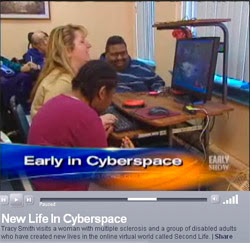Stigmatization & Holding Back High Potential Children
I have heard too often these labels being used by teachers when discussing students: X is “bright”, Y is “capable”, Z is “strong”, “average”, “below-par”, “good enough — can fend for herself”… etc. I’ll start with the gifted label. I don’t understand why there is this great misunderstanding of high-ability and high-potential kids and the marginalization of this group in a majority of American schools, and it seems, also in Canadian education. Read this article.
I like this comment by Sandy, Nov 27, 2010:
“Something I have always had a problem with. Gifted children still need to be taught. There is, unfortunately the view that because they are smart, they can teach themselves. Wrong.”
Who are the “gifted”? http://lifewithintensity.blogspot.com/2011/06/top-ten-things-i-wish-teachers.html
Some people think that is “shameless” of me, how could I want to be “segregated” (be in ability grouping) and be part of this elitist education? Tsk, tsk. Everyone should go to schools that level out differences; there should be equity, etc, etc.
Being an advocate of special provision for high-potential children does not mean I don’t believe in equity. In fact, it is exactly for that reason that we should provide for these children. Everyone is different and in Singapore, for instance, ability grouping is practiced in the formal educational system for those who need special education at both ends of the spectrum — the ones at the high-ability end and the ones with “learning disabilities”. These are BOTH special learning populations. Those who disdain this practice usually have limited understanding of the needs of high-ability and high-potential students. (Until they have a gifted child like my friend. Her child is now in grade 1 but has been tested as having grade 6 intellectual ability. This child was extremely bored and frustrated; the psychologist said he’s being held back in his former school. So she moved him to another school in the hope that he would be challenged. NYS schools have no provision for this special population. The school he was in cannot handle him. What do we do for children like these? Differentiated instruction? Is that working? How many teachers are trained to handle students of a wide spectrum of ability and especially, of this special learning population?)
Many educators assume that high-achieving and high-ability students have trouble getting along with people, so they must be given cooperative learning experiences. That is flawed thinking. It is not the students who have trouble getting along with people, it is the learning environment that is often not supportive of their accelerated learning capacity. So they get really frustrated, dumbed-down and act out.
Many are unfortunately uninformed as to what cookie-cutter education in mainstream schools are doing to intellectually gifted students; they underachieve when not adequately supported. They get demotivated; they waste their talent. Why would anyone want that for their children? I have taught in schools where I’ve seen high-ability students bored and ready to tear their hair out. Yes, in a high-ability class, you can get bored too, because there is heterogeneity in the gifted population too. But there is less wide an intellectual spectrum.



2 Comments
teachagiftedkid
Thank you for sharing your blog with me! I totally agree with so many of your points. Now, how can we get your experience to audiences outside of gifted parents and on to the decision makers?
ywbkreher@gmail.com
I have no easy answers for this. I for one know I'm going to continue advocating by writing and focusing research on it. Getting together to voice these concerns as a group will also help.